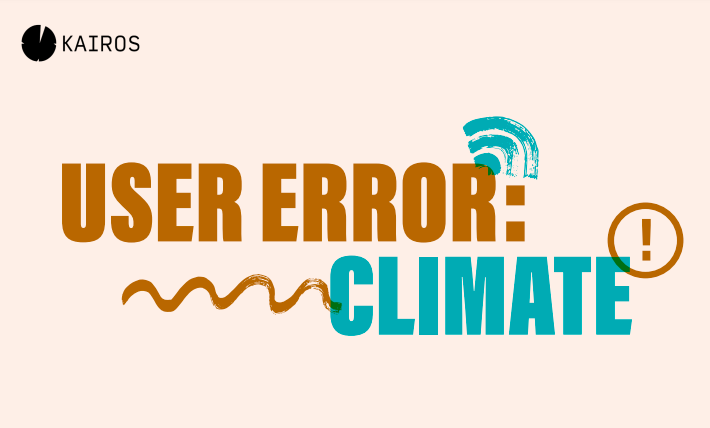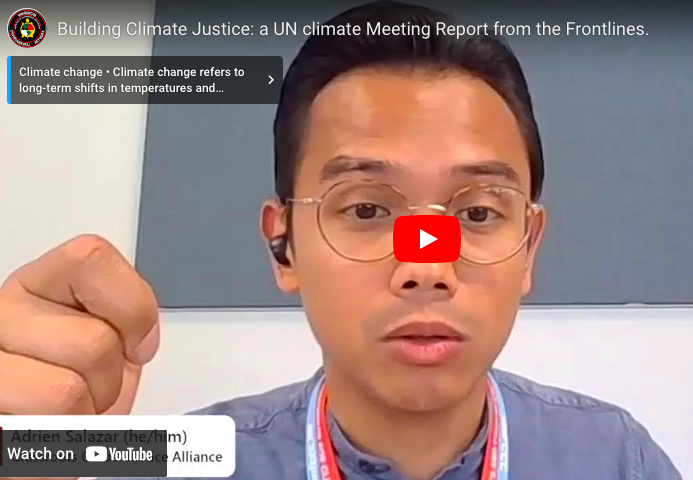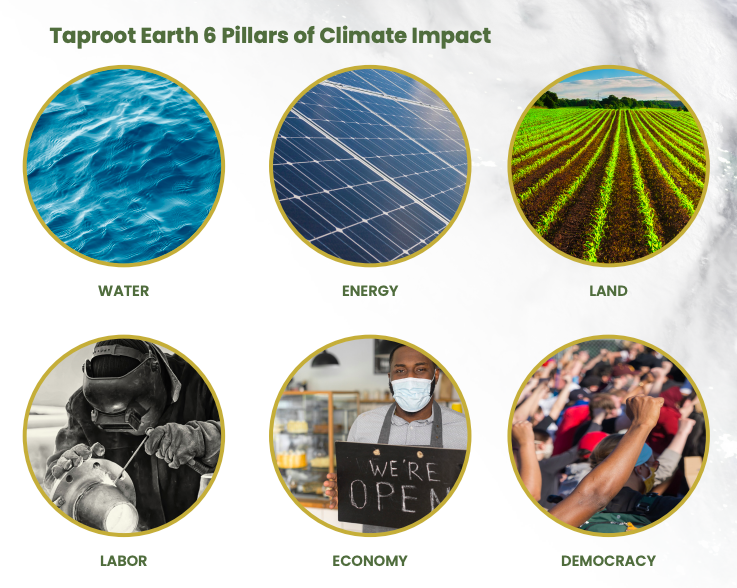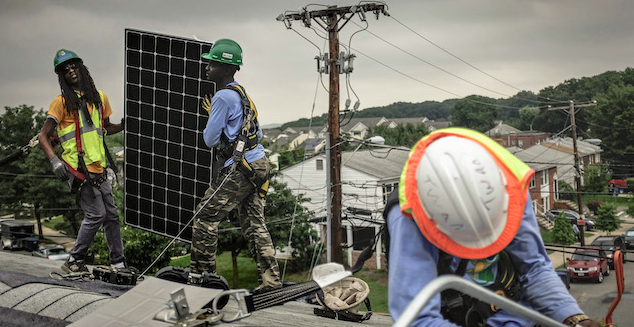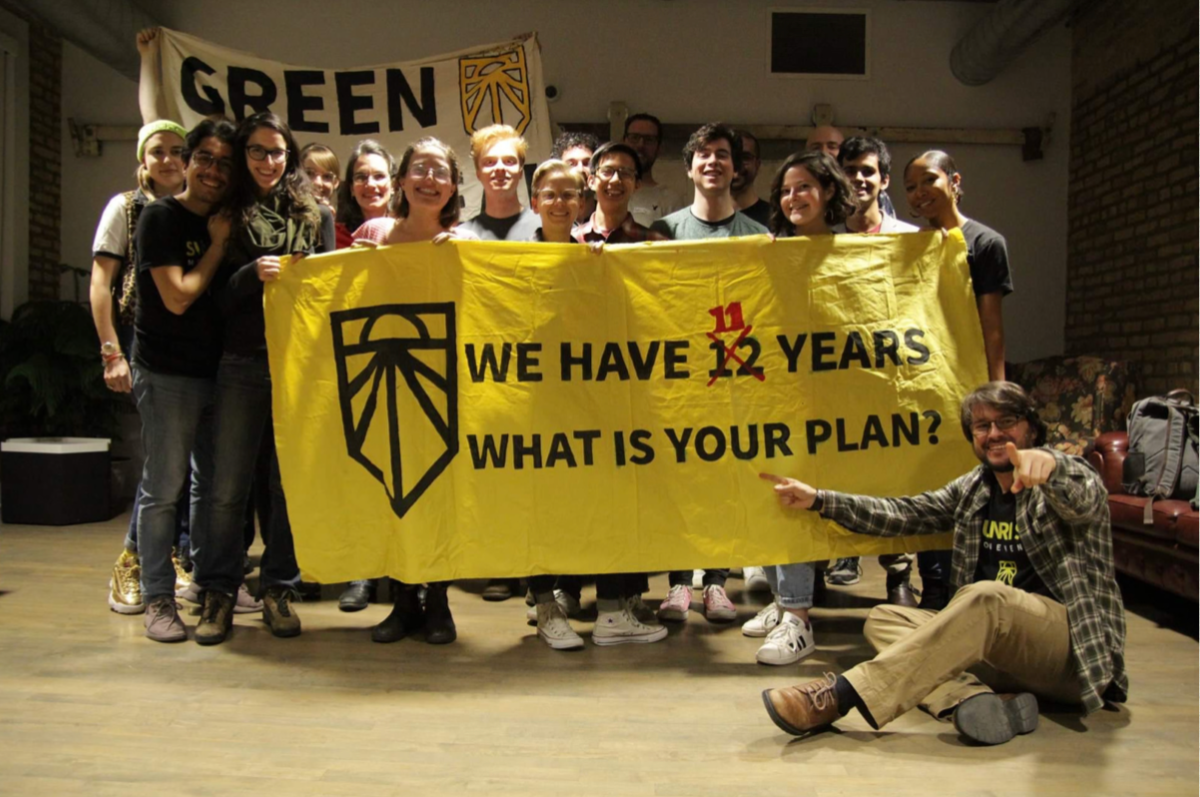Resources
Search below for resources covering the intersection of climate engagement, social science and data analytics.
RESULTS
User Error: Climate
This report explores Big Tech’s actions that feed the climate crisis. Big Tech’s actions include: allowing disinformation to flourish online; providing cloud services to help oil and gas companies pump more fossil fuels; participating in trade organizations that lobby against policies that would help the US shrink emissions; producing ever-growing emissions of their own; and funding and promoting false solutions. This report ends with demands for Big Tech to stop these actions that fund the worsening of the climate crisis. To fight the climate crisis, Google, Meta, Microsoft, Apple, and Amazon need to: support policies that help the U.S. end its reliance on fossil fuels; withdraw from trade groups that lobby against climate mitigation; support climate mitigation efforts that have grassroots support, like shrinking fossil fuel and other polluting industries to cut greenhouse gas emissions at their source; stop providing cloud services to oil and gas companies; eliminate climate disinformation on your platforms; and create and follow measurable plans to get to carbon-zero, not ones based on speculative tech and wishful thinking.
You Can Win Bold Climate Laws in Your State
New York State passed the Build Public Renewables Act in May 2023. In this resource, Olúfẹ́mi O. Táíwò spoke with three organizers from the NYC-DSA Ecosocialist Working Group who campaigned for the legislation. Socialists in New York City spearheaded the Build Public Renewables Act (BPRA) to authorize and mandate the public power authority, the New York Power Authority (NYPA), to build, develop, and own renewable energy in the state to meet the climate goals set in 2019 to decarbonize the state’s energy system. DSA also wanted to create discounted utility rates for low- to moderate-income communities because people are struggling to pay their energy bills, as well as close down all of NYPA’s gas peaker plants, which are primarily located in Black and brown neighborhoods. The campaign built relationships with environmental justice organizations like WE ACT, other DSA chapters, groups like Sane Energy Project, For the Many, Food & Water Watch, and Sunrise NYC—and it was tougher to power map to get labor unions to support the bill and get it over the finish line. DSA-endorsed legislators were crucial to pushing the policy inside the state legislature. This long-form interview includes many other descriptions of the campaign.
Nuts and Bolts for Building Resilient Organizations
These are the skills that leaders need to develop in order to build resilient organizations. Humility: A culture of humility lowers everyone’s blood pressure, providing the key foundation for people to be able to work through their differences together. Self-discipline: Self-discipline builds power at scale. Imposed discipline occasionally has its place (firings, etc.), but anything held together only through imposed discipline will be a lot smaller, more fragile, and less powerful than an adaptable, decentralized organization with self-disciplined leaders. To create self-disciplined leaders, we emphasize the skills of simplicity, habits, and joy. Love: It’s valuing people for who they are, seeing the best in them, and figuring out how to integrate people together into mutually beneficial relationships.
Building Bridges and Growing the Soul of Chicago: A Blueprint for Creating a More Just and Vibrant City for All
New Chicago Mayor Brandon Johnson is taking climate justice seriously. The environmental justice subcommittee of the mayor’s transition team insists on taking a holistic view of environmental issues including water safety, access to energy and safe housing, and issues of pollution and climate change. The issue of wealth disparity and racism resurface in this report as issues embedded in the way environmental issues have unfolded. Environmental racism is real. They invite us to see the rubric of a “just transition,” and the policy framework of a “Green New Deal” for Chicago as guiding principles for efforts to realize a cleaner, healthier, more just, and sustainable city. In additional to a cleaner, safer, more reliable public transportation trains and busses, accessibility and affordability at all levels, and ample bike paths, an expansive view of Transportation must also factor in racism (such as racial profiling in traffic stops). Access to clean, safe reliable transportation is related to economic security, economic vitality and an overall cleaner environment. The transportation subcommittee insisted the City “needs to work with community in planning transportation strategy.” Again, the importance of engagement and ongoing accountability were uplifted in the transportation subcommittee report as they were in all the other groups.
Members of the It Takes Roots delegation discussed important achievements in UNFCCC history, such as the Kyoto Protocol and Paris Accord, with a special focus on Article 6 of the Paris Accord, which allows the biggest polluters to continue unabated by buying and selling “pollution credits” through carbon markets. They emphasized the importance of denouncing false solutions, preserving human rights and Indigenous rights, and understanding that a just transition moves us away from fossil fuels immediately. “When they’re talking about hydrogen, carbon capture, forest management and whatever… it’s not going to be in rich white neighborhoods, not in any place other than communities that are already overburdened and affected by the legacy of dirty energy,” said José Bravo, executive director of Just Transition Alliance.
Gulf to Appalachia Climate Action Strategy 2022-2023
Stronger movements will come from continuous joyful acts of building community and the strategic investment in collective leadership towards a bright, just future for many generations to come. This report calls on others in the movement to learn, work together, be proactive, find connection and safety, and uplift hope. This report’s #WeChooseNow Climate Action Strategy convened over 150 frontline and allied leaders for community power building sessions across the Gulf South and Appalachia to affirm a path forward in repairing generational harms of environmental racism through collective governance to protect what is sacred and help our communities thrive. This report’s organizing strategy guide includes advice on relational and capacity building, funding, communication tools, safety and security, and policy and project support. Specifically, this organizing strategy will include a frontline organizing retreat, a leadership activation fellowship, a communication toolkit, a resource exchange portal, and frontline aligned funding.
The Fight Against Cop City
The protests in Atlanta against "Cop City" build on a history of organizers challenging prison construction as a force for environmental destruction. In defiance of the ongoing protests, the police and their contractors have started to cut down the forest, and the future of the encampment remains unclear. The campaign against Cop City is simultaneously an objection to building a new center for police training and a campaign to defend the Weelaunee Forest. The activists fighting against Cop City argue that police violence itself constitutes an environmental hazard, and that toxic chemicals associated with explosives that could be used on the site will destroy the air, water, and land on which myriad forms of life depend.
The Future of the Labor-Climate Alliance
Relying on the private sector to decarbonize is a recipe for abandoning workers. The uncertain labor conditions of the Inflation Reduction Act make it all the more important that labor and climate organizers remain engaged with the process of implementing the new law. State and local organizing can also be more effective in bridging the tension between fossil fuel workers and climate policies. In addition to state and local organizing, another logical step to strengthen labor-climate advocacy is for more environmental and climate organizations to support legislative reforms to make organizing easier, such as the PRO Act. Ending fossil fuel use will require building power through multi-issue, broad-based coalitions—we are stronger together.
Reflections, Lessons and Learnings on Multiracial, Cross-Class Movement Building
From studying past social movements, the Lab has learned that the transformational change necessary to equitably address the climate crisis is more likely to occur when multiracial, cross-class (MRXC) movements* claim their collective power, expand the imagination of what’s possible, and organize and mobilize people at scale. In the last 5 years, the Sunrise Movement has demonstrated a commitment to learning and practice on multiracial, cross-class movement building. This week’s newsletter features reflections and lessons from Lab member and Deputy Organizer Director at Sunrise, Dejah Powell. As a Lab member yourself, you can read the full report* on how Sunrise has been working to build a movement across race and class, and the implications and learnings based on those efforts. This report was developed as part of the Lab’s Climate Justice Microgrant Program.
Pushing for Energy Justice with Fairbanks Climate Action Coalition: Community Organizing Lessons from Alaska
The Fairbanks Climate Action Coalition (FCAC) is working to advance a Just Transition away from fossil fuel extraction and towards renewable energy and a regenerative economy in interior Alaska. For several years, FCAC’s Renewable Energy Working Group has been organizing around their local electric utility cooperative, Golden Valley Electric Association (GVEA), to support more generation from renewable energy sources and energy justice initiatives and decarbonization of electricity. FCAC’s organizing efforts have supported more pro-renewable candidates to be democratically elected to the GVEA’s Board of Directors and pushed the utility to consider community solar projects and on-bill financing. A major win came in June 2022 when the GVEA Board adopted a strategic generation plan including a commitment to close down one of their coal plants and pursue a large scale wind power project.
In this webinar, FCAC shares learnings from their Microgrant Report: Cooperative Opportunity: Clean Energy documenting the development of their campaign, sharing reflections on how their organizing structure led to wins, the challenges they faced, and the lessons that can be learned to succeed in future campaigns.
Pagination
- Previous page
- Page 2
- Next page
